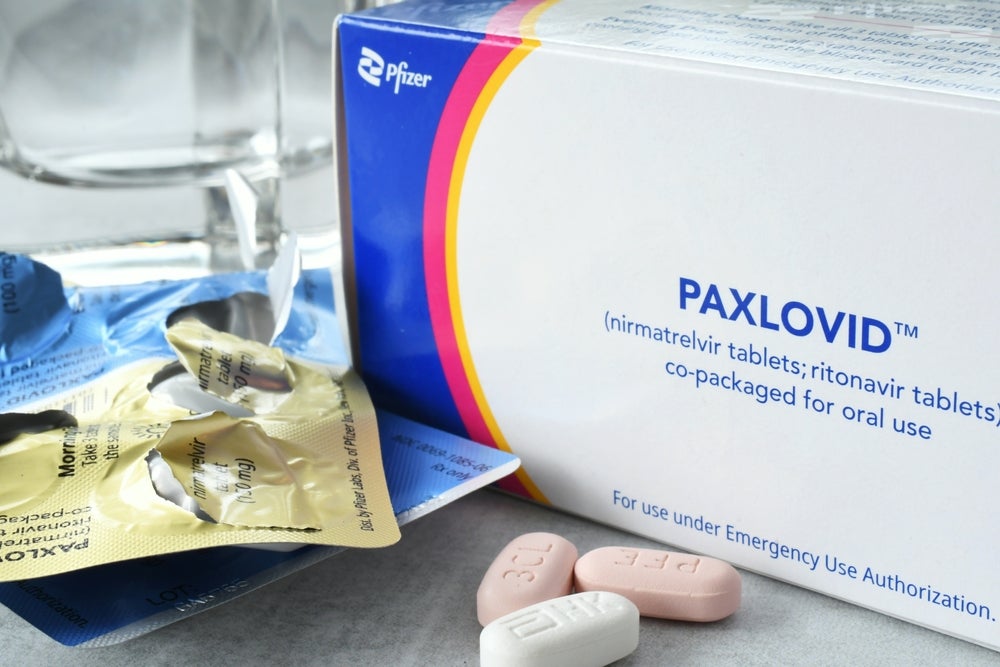
An additional 1.4 million people in England and Wales who are at risk of progression to severe Covid-19 will have access to Pfizer’s antiviral Paxlovid (nirmatrelvir/ritonavir), following final draft guidance published by the National Institute of Care and Excellence (NICE).
Paxlovid is already recommended to an estimated 3.9 million people who have certain cancers, diseases affecting organs or the blood, or have had haematological stem cell transplants.

Discover B2B Marketing That Performs
Combine business intelligence and editorial excellence to reach engaged professionals across 36 leading media platforms.
NICE’s updated guidance, published on 11 January, expands the pill’s access to people aged 85 years. People with end-stage heart failure who have a long-term ventricular assistance device will also be eligible, along with those on the organ transplant waiting list. Patients already in hospitals and residents in care homes who are 70 years and over or have diabetes, heart failure or a BMI over 35 kg/m2 will be included too.
Around 5.3 million people, who test positive for Covid-19 and do not need supplemental oxygen for the disease, are estimated to soon have access to the antiviral tablets.
Paxlovid, a combination of nirmatrelvir and ritonavir administered as two separate tablets, was approved by the UK’s Medicines and Healthcare products Regulatory Agency (MHRA) in December 2021. The drug saw peak global sales in 2022, totalling $18.9bn. Annual sales of the drug have since declined as the number of Covid-19 infections has fallen. GlobalData’s Pharma Intelligence Centre estimates Paxlovid’s annual sales is shrinking at a CAGR of -17.8%.
GlobalData is the parent company of Pharmaceutical Technology.

US Tariffs are shifting - will you react or anticipate?
Don’t let policy changes catch you off guard. Stay proactive with real-time data and expert analysis.
By GlobalDataThere is still unpredictability in SARS‑CoV‑2, the virus that causes Covid-19. A new variant JN.1 has been rapidly increasing in global prevalence. In an initial risk evaluation on 19 December 2023, the World Health Organisation (WHO) said the variant may cause an increase in Covid-19 cases in winter season countries.
NICE’s director of medicines evaluations Helen Knight said: “Although we are no longer in a pandemic, Covid-19 is still circulating, and we are pleased that more people at risk of severe disease can benefit from Paxlovid.”
As per NICE’s recommendation, England and Wales’ NHS now has three months to make sure the treatment is viable.
In October 2023, Pfizer recorded a $5.5bn non-cash charge due to Covid-19 product write-offs. The big pharma said the US government would return nearly eight million courses of Paxlovid. Inventory write-offs for Paxlovid contributed $4.6bn to the charge. Pfizer blamed the lower demand for Covid-related sales when it dropped its full-year revenue guidance from $67bn-$70bn to $58bn-$61bn.
Alongside Paxlovid, the NHS also offers antivirals Veklury (remdesivir) from Gilead Sciences and MSD’s Lagevrio (molnupiravir).
GSK/Vir Biotech’s Xevudy (sotrovimab) is a monoclonal antibody given to Covid-19 patients on the NHS who are unsuitable for antivirals.




